Erica Verrillo's Blog, page 96
February 26, 2014
4 Romance Publishers Looking for Writers - No Agent Needed
Many romance publishing houses are open to receiving unagented manuscripts, particularly digital imprints. Some of these, like Harlequin, are big names in the publishing industry.
I've included some details in the "How to submit" sections below, but be sure to click on the link to read their full requirements. As always, follow all instructions to the letter.
__________________________________
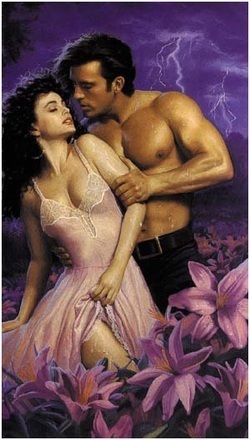 Harlequin
Harlequin
Harlequin Enterprises Limited is a Toronto-based company that publishes series romance and women's fiction. Owned by the Torstar Corporation, the largest newspaper publisher in Canada, the company publishes approximately 120 new titles each month in 29 different languages in 107 international markets on six continents. These books are written by over 1,300 authors worldwide, offering readers a broad range of fiction including romance, psychological thrillers and relationship novels. The company reported sales of 131 million books in 2006—half overseas and 96% outside of Canada.
What they are looking for: Harlequin Desire publishes contemporary romance novels that "feature strong-but-vulnerable alpha heroes and dynamic heroines who want love."
How to submit: First: check out the Harlequin Writing Guidelines and identify the Series that your novel best fits. The only lines accepting manuscripts are the Harlequin Series and Harlequin Kimani. Please note that their single title imprints comprising Harlequin MIRA, Harlequin HQN, Harlequin TEEN and Harlequin Nonfiction only accept agented submissions.
Second: check the Electronic Manuscript Guidelines for further instruction. Briefly, have your manuscript saved as .txt, .rtf, .doc or .docx, and follow the naming convention of LastName_SeriesInitials_Manuscript Title. For Series initials, see below. Please include your query letter as page 1 of your file, with your synopsis starting on page 2. The recommended length for your synopsis is between 500-1000 words. Your synopsis should provide an overview of your story – including the ending! Please note that your manuscript should start on the page after your synopsis.
Third: Please sign in or register to use Harlequin Manuscript Submission.
Fourth: If you have had encouragement from a specific editor or have information you think would be useful beyond your query letter, please include it in the comments box. If there is important information, do let them know.
________________________________
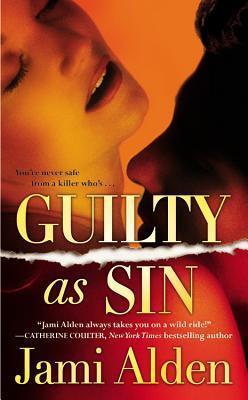 Forever Yours
Forever Yours
Forever Yours is a digital-only imprint of Grand Central Publishing, which is part of Hachette Book Group. Forever Yours publishes new works as well as backlist titles from its nine-year-old Forever imprint. The imprint does two to four e-book titles a month
What they are looking for: Forever Yours is currently accepting romance submissions from all subgenres, including but not limited to: contemporary, romantic comedy, romantic suspense, western, historical, inspirational, paranormal, sci-fi/fantasy, futuristic, urban fantasy, steampunk, time-travel, and erotica. We are not accepting YA, mystery, general fiction, non-fiction, or poetry.
How to submit : They are accepting novella length works (8,000-35,000 words), as well as longer works from 35,000-100,000 words. Send the following to this address: ForeverYours@hbgusa.com
A query letter introducing yourself, the genre you are writing in, and the word count of your work.A detailed 3-5 page synopsis.Your completed manuscript saved as an RTF file. Forever Yours will only consider manuscripts that are complete at the time of submission__________________________________
 Carina Press
Carina Press
Carina Press is one of Harlequin’s digital-first adult fiction single-title imprints, publishing first in digital, with releases in audio and print as well.Though Harlequin is mainly known as a romance publisher, Carina Press publishes a wide range of adult fiction genres and features books from talented authors in all genres, including romance, science fiction, fantasy, mystery and more.
What they are looking for: [From the website] We are seeking submissions in all subgenres of romance with all levels of sensuality. We welcome everything from the very sweet to the incredibly erotic, featuring couples (or multiples) from all walks of life and sexual orientation, including same-sex romances. Romances should focus on the development of the relationship, as well as external and internal conflict; the heat level should be appropriate to the book and enhance the story, and the primary relationship in the book should offer a happily ever after (HEA) or happily for now (HFN) in an emotionally satisfying manner. Sorry, but one of the couple cannot die or leave the other if it’s to be sold as a romance!
How to submit: Please submit queries for only completed, fully polished manuscripts, unless previously arranged otherwise with an editor. Queries must include the following and will not be reviewed if any piece is missing:
Required: In the submissions form, you will be asked for a brief, introductory query letter listing genre, word count and a short description of the book, as well as any pertinent information about the author, including both legal name and pen name and any writing credits. The query letter is your sales pitch and we use the information included in it.Required: The full manuscript saved as an RTF or DOC file and attached, with file name TITLE_MANUSCRIPT where you substitute your book’s title in place of TITLE. (example: WarAndPeace_Manuscript)Required: 2-5 page synopsis of book that details character development, plot, and conflict/story resolution. Attach as an RTF or DOC file with file name TITLE_SYNOPSIS where you substitute your book’s title in place of TITLE. (Example: WarAndPeace_Synopsis)Please be sure to put the following information on the first page of all files: manuscript name, author pen name/legal name, email address, phone number, genre and word count. If you don’t include your phone number, it makes it impossible for us to make The Call!Combined size of both attachments must be under 4 MB in size. We’re unable to send files larger than this to our editors due to restrictions in our email system. If your manuscript is over 4 MB, please remove extra images, delete extraneous styles or font use that may increase file sizePlease allow 12 weeks for an editorial response to your submission. If a response has not been received after 12 weeks, please follow-up via your submittable account by adding a note to your submission log.
____________________________________________
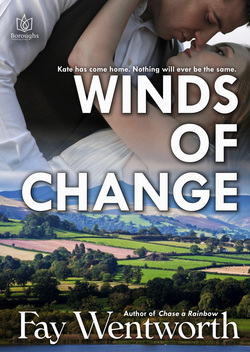 Boroughs Publishing Group
Boroughs Publishing Group
Boroughs Publishing Group is a digital-only publisher that focuses solely on romance novels, of all genres and lengths.
What they are looking for:
ContemporaryErotic RomanceFantasyHistoricalMulti-culturalParanormalRomantic Suspense/ThrillersUrban FantasyYoung AdultHow to submit: [From the website] Unpublished authors please submit your finished MS only. Published authors may submit first three chapters. Standard word counts are: 30 - 40,000 words for novellas; 70 - 120,000 words for full-length novels. We are accepting short Romance fiction for our Lunchbox Romance line, 6,000 - 12,000 words. Please submit the full MS for Lunchbox Romances.
Please submit a synopsis of your book that summarizes the story, including the ending, that is no more than two pages long. Please title your synopsis e.g., Synopsis for Romance Novel, 85,ooo words.
Your submission must be double spaced, Times New Roman 12 point, with one inch borders, submitted in MS Word with the book title and your name in the header flush right.
Please submit your personal marketing plan. Don’t panic. We’re a full service publishing house. Of course we’re going to market your book. But in this day and age, let’s be realistic. You have to have some savvy about putting yourself and your work out there. Commitment to your work and your writing goals is a good thing.
All submissions are online. Response time: 8 weeks.
I've included some details in the "How to submit" sections below, but be sure to click on the link to read their full requirements. As always, follow all instructions to the letter.
__________________________________
 Harlequin
HarlequinHarlequin Enterprises Limited is a Toronto-based company that publishes series romance and women's fiction. Owned by the Torstar Corporation, the largest newspaper publisher in Canada, the company publishes approximately 120 new titles each month in 29 different languages in 107 international markets on six continents. These books are written by over 1,300 authors worldwide, offering readers a broad range of fiction including romance, psychological thrillers and relationship novels. The company reported sales of 131 million books in 2006—half overseas and 96% outside of Canada.
What they are looking for: Harlequin Desire publishes contemporary romance novels that "feature strong-but-vulnerable alpha heroes and dynamic heroines who want love."
How to submit: First: check out the Harlequin Writing Guidelines and identify the Series that your novel best fits. The only lines accepting manuscripts are the Harlequin Series and Harlequin Kimani. Please note that their single title imprints comprising Harlequin MIRA, Harlequin HQN, Harlequin TEEN and Harlequin Nonfiction only accept agented submissions.
Second: check the Electronic Manuscript Guidelines for further instruction. Briefly, have your manuscript saved as .txt, .rtf, .doc or .docx, and follow the naming convention of LastName_SeriesInitials_Manuscript Title. For Series initials, see below. Please include your query letter as page 1 of your file, with your synopsis starting on page 2. The recommended length for your synopsis is between 500-1000 words. Your synopsis should provide an overview of your story – including the ending! Please note that your manuscript should start on the page after your synopsis.
Third: Please sign in or register to use Harlequin Manuscript Submission.
Fourth: If you have had encouragement from a specific editor or have information you think would be useful beyond your query letter, please include it in the comments box. If there is important information, do let them know.
________________________________
 Forever Yours
Forever YoursForever Yours is a digital-only imprint of Grand Central Publishing, which is part of Hachette Book Group. Forever Yours publishes new works as well as backlist titles from its nine-year-old Forever imprint. The imprint does two to four e-book titles a month
What they are looking for: Forever Yours is currently accepting romance submissions from all subgenres, including but not limited to: contemporary, romantic comedy, romantic suspense, western, historical, inspirational, paranormal, sci-fi/fantasy, futuristic, urban fantasy, steampunk, time-travel, and erotica. We are not accepting YA, mystery, general fiction, non-fiction, or poetry.
How to submit : They are accepting novella length works (8,000-35,000 words), as well as longer works from 35,000-100,000 words. Send the following to this address: ForeverYours@hbgusa.com
A query letter introducing yourself, the genre you are writing in, and the word count of your work.A detailed 3-5 page synopsis.Your completed manuscript saved as an RTF file. Forever Yours will only consider manuscripts that are complete at the time of submission__________________________________
 Carina Press
Carina PressCarina Press is one of Harlequin’s digital-first adult fiction single-title imprints, publishing first in digital, with releases in audio and print as well.Though Harlequin is mainly known as a romance publisher, Carina Press publishes a wide range of adult fiction genres and features books from talented authors in all genres, including romance, science fiction, fantasy, mystery and more.
What they are looking for: [From the website] We are seeking submissions in all subgenres of romance with all levels of sensuality. We welcome everything from the very sweet to the incredibly erotic, featuring couples (or multiples) from all walks of life and sexual orientation, including same-sex romances. Romances should focus on the development of the relationship, as well as external and internal conflict; the heat level should be appropriate to the book and enhance the story, and the primary relationship in the book should offer a happily ever after (HEA) or happily for now (HFN) in an emotionally satisfying manner. Sorry, but one of the couple cannot die or leave the other if it’s to be sold as a romance!
How to submit: Please submit queries for only completed, fully polished manuscripts, unless previously arranged otherwise with an editor. Queries must include the following and will not be reviewed if any piece is missing:
Required: In the submissions form, you will be asked for a brief, introductory query letter listing genre, word count and a short description of the book, as well as any pertinent information about the author, including both legal name and pen name and any writing credits. The query letter is your sales pitch and we use the information included in it.Required: The full manuscript saved as an RTF or DOC file and attached, with file name TITLE_MANUSCRIPT where you substitute your book’s title in place of TITLE. (example: WarAndPeace_Manuscript)Required: 2-5 page synopsis of book that details character development, plot, and conflict/story resolution. Attach as an RTF or DOC file with file name TITLE_SYNOPSIS where you substitute your book’s title in place of TITLE. (Example: WarAndPeace_Synopsis)Please be sure to put the following information on the first page of all files: manuscript name, author pen name/legal name, email address, phone number, genre and word count. If you don’t include your phone number, it makes it impossible for us to make The Call!Combined size of both attachments must be under 4 MB in size. We’re unable to send files larger than this to our editors due to restrictions in our email system. If your manuscript is over 4 MB, please remove extra images, delete extraneous styles or font use that may increase file sizePlease allow 12 weeks for an editorial response to your submission. If a response has not been received after 12 weeks, please follow-up via your submittable account by adding a note to your submission log.
____________________________________________
 Boroughs Publishing Group
Boroughs Publishing GroupBoroughs Publishing Group is a digital-only publisher that focuses solely on romance novels, of all genres and lengths.
What they are looking for:
ContemporaryErotic RomanceFantasyHistoricalMulti-culturalParanormalRomantic Suspense/ThrillersUrban FantasyYoung AdultHow to submit: [From the website] Unpublished authors please submit your finished MS only. Published authors may submit first three chapters. Standard word counts are: 30 - 40,000 words for novellas; 70 - 120,000 words for full-length novels. We are accepting short Romance fiction for our Lunchbox Romance line, 6,000 - 12,000 words. Please submit the full MS for Lunchbox Romances.
Please submit a synopsis of your book that summarizes the story, including the ending, that is no more than two pages long. Please title your synopsis e.g., Synopsis for Romance Novel, 85,ooo words.
Your submission must be double spaced, Times New Roman 12 point, with one inch borders, submitted in MS Word with the book title and your name in the header flush right.
Please submit your personal marketing plan. Don’t panic. We’re a full service publishing house. Of course we’re going to market your book. But in this day and age, let’s be realistic. You have to have some savvy about putting yourself and your work out there. Commitment to your work and your writing goals is a good thing.
All submissions are online. Response time: 8 weeks.
Published on February 26, 2014 08:24
February 25, 2014
Are the Horror Stories About Traditional Publishing True?
 Dana Weinberg has done another survey analysis, this time of author satisfaction.
Dana Weinberg has done another survey analysis, this time of author satisfaction.She compared how happy authors were with royalties, editorial help, copies sold, and so on across three publishing platforms: traditional, self-published and hybrid (a combination of the two).
Are the horror stories about traditional publishers true? Her conclusion was a resounding "meh."
I have a few comments to make about this survey. The first is that people are more reluctant to give negative answers on surveys than positive ones. This means that every survey will be slanted towards positive responses.
The second thing to keep in mind is that the majority of books that are traditionally published don't make back their advances.
What this means is that publishers don't put a lot of time or energy promoting books by authors who aren't already celebrities. The reason they don't bother is that they would rather invest their resources in promoting cash cows. With hundreds of authors, and thousands of titles on their lists, this makes sense for large houses.
The other thing to keep in mind is that authors who are "cursed with ugly covers ... receive very little assistance or support in the way of marketing and promotion, or learned that their publishers had little investment in their careers as writers and/or no interest in their future books" is not a horror story - it is the reality of the publishing world, and thinking otherwise is delusional.
Just to give you some perspective, here are a couple of real horror stories:
You sign a contract with a major publisher, only to have is scrapped when the house goes through an organizational shake-up. You can't find another publisher. (That happened to a friend of mine.)
You submit your manuscript, and your editor wants you to take out any word longer than two syllables, shift the POV, change the title, and delete half the chapters. (That happened to me, as did having an editor insert the first paragraph of the Declaration of Independence into one of my short stories.) Your baby is butchered.
While traditional publishing is not all it's cracked up to be (it really isn't), believing that self-publishing is the road to the Land of Milk and Honey is delusional as well.
Those who find themselves dissatisfied with self-publishing have to ask themselves some hard questions. Have I spent several hours a day marketing and promoting my work? Have I researched the market to find out how I can reach my audience, or have I assumed that simply "putting it out there" is enough? Did I expect instant fame and fortune?
Let's be realistic. No matter how you publish - whether you have taken the traditional route, or done it yourself - great expectations must be matched by a great amount of work. There is no substitute.
___________________________________
How Common Are Traditional Publishing Horror Stories?—Author Survey Results
By Dana Beth Weinberg, Digital Book World
I have heard numerous horror stories on the fiction front from authors who sold their books to publishers only to find they had lost control of content, were cursed with ugly covers that doomed any hope of sales, received very little assistance or support in the way of marketing and promotion, or learned that their publishers had little investment in their careers as writers and/or no interest in their future books. Such horror stories often seem pervasive, and they easily become rallying cries for self-publishing and the greater control it provides authors. Are these tales of dissatisfaction with traditional publishing notable exceptions, or are they the norm?
The traditional-publishing victims I’ve encountered typically report that they had been thrilled to receive their contracts and had accepted neglect or poor treatment or disadvantageous terms because they felt they had no choice. Indeed, before self-publishing became a viable option, few of them did. Worse, such experiences could harken the death spiral for an author’s career: no investment from the publisher could lead to sluggish sales which in turn could lead to poor chances of selling a subsequent title either to publishers or bookstores. Authors would be forced to abandon series or throw away their brands and try to reinvent themselves.
Cautionary tales capture our attention, and they tend to get repeated and even embellished. In other posts, I reported survey results showing a preference for traditional publishing among authors. I also found that authors had expectations for several advantages of traditional publishing relative to self-publishing. With so many authors positively disposed toward traditional publishing, perhaps these horror stories are very visible and heartbreaking exceptions, a disappointing conclusion to the struggle to break into the traditionally published ranks.
Read more HERE.
Published on February 25, 2014 08:30
How Common Are Traditional Publishing Horror Stories?
 Dana Weinberg has done another survey analysis, this time of author satisfaction.
Dana Weinberg has done another survey analysis, this time of author satisfaction.She compared how happy authors were with royalties, editorial help, copies sold, and so on across three publishing platforms: traditional, self-published and hybrid (a combination of the two).
Are the horror stories about traditional publishers true? Her conclusion was a resounding "meh."
I have a few comments to make about this survey. The first is that people are more reluctant to give negative answers on surveys than positive ones. This means that every survey will be slanted.
The second thing to keep in mind is that the majority of books that are traditionally published don't make back their advances.
What this means is that publishers don't put a lot of time or energy promoting books by authors who aren't already celebrities. The reason they don't bother is that they would rather invest their resources in promoting cash cows. With hundreds of authors, and thousands of titles on their lists, this makes sense for large houses.
The other thing to keep in mind is that authors who are "cursed with ugly covers ... receive very little assistance or support in the way of marketing and promotion, or learned that their publishers had little investment in their careers as writers and/or no interest in their future books" is not a horror story - it is the reality of the publishing world, and thinking otherwise is delusional.
Just to give you some perspective, here are a couple of real horror stories:
You sign a contract with a major publisher, only to have is scrapped when the house goes through an organizational shake-up. You can't find another publisher. (That happened to a friend of mine.)
You submit your manuscript, and your editor wants you to take out any word longer than two syllables, shift the POV, change the title, and delete half the chapters. (That happened to me, as did having an editor insert the first paragraph of the Declaration of Independence into one of my short stories.) Your baby is butchered.
While traditional publishing is not all it's cracked up to be (it really isn't), believing that self-publishing is the road to the Land of Milk and Honey is delusional as well.
Those who find themselves dissatisfied with self-publishing have to ask themselves some hard questions. Have I spent several hours a day marketing and promoting my work? Have I researched the market to find out how I can reach my audience, or have I assumed that simply "putting it out there" is enough? Did I expect instant fame and fortune?
Let's be realistic. No matter how you publish - whether you have taken the traditional route, or done it yourself - great expectations must be matched by a great amount of work. There is no substitute.
___________________________________
How Common Are Traditional Publishing Horror Stories?—Author Survey Results
By Dana Beth Weinberg, Digital Book World
I have heard numerous horror stories on the fiction front from authors who sold their books to publishers only to find they had lost control of content, were cursed with ugly covers that doomed any hope of sales, received very little assistance or support in the way of marketing and promotion, or learned that their publishers had little investment in their careers as writers and/or no interest in their future books. Such horror stories often seem pervasive, and they easily become rallying cries for self-publishing and the greater control it provides authors. Are these tales of dissatisfaction with traditional publishing notable exceptions, or are they the norm?
The traditional-publishing victims I’ve encountered typically report that they had been thrilled to receive their contracts and had accepted neglect or poor treatment or disadvantageous terms because they felt they had no choice. Indeed, before self-publishing became a viable option, few of them did. Worse, such experiences could harken the death spiral for an author’s career: no investment from the publisher could lead to sluggish sales which in turn could lead to poor chances of selling a subsequent title either to publishers or bookstores. Authors would be forced to abandon series or throw away their brands and try to reinvent themselves.
Cautionary tales capture our attention, and they tend to get repeated and even embellished. In other posts, I reported survey results showing a preference for traditional publishing among authors. I also found that authors had expectations for several advantages of traditional publishing relative to self-publishing. With so many authors positively disposed toward traditional publishing, perhaps these horror stories are very visible and heartbreaking exceptions, a disappointing conclusion to the struggle to break into the traditionally published ranks.
Read more HERE.
Published on February 25, 2014 08:30
February 23, 2014
Booksellers, Publishers Strip to Protest Banning of Children's Book
 This is just plain inspiring. A prominent conservative French politician wants to censor the nude picture book, but publishers and booksellers have defended the book by authors Claire Frank and Marc Daniau.
This is just plain inspiring. A prominent conservative French politician wants to censor the nude picture book, but publishers and booksellers have defended the book by authors Claire Frank and Marc Daniau.Booksellers bare all to protest censorship attempt of ‘Everybody Gets Naked’ children’s book
By Michael Walsh, New York Daily News , Thursday, February 20, 2014
Book lovers would rather be stripped of their clothes than their right to read freely.
A group of French booksellers and publishers took off their clothes Wednesday to protest conservative politician Jean-François Copé's call to censor a children's book from 2011 called "Everybody Gets Naked" (Tous à Poil), the Local reported.
The storybook shows that everyone takes off their clothes sometimes to calm children's fears about their own bodies, according to authors Claire Franek and Marc Daniau.
They wanted to present real bodies in natural situations "to counter the numerous images of bodies, often undressed, altered by Photoshop or plastic surgery, that are shown in ads or on the covers of magazines," according to Melville House Books.
Read the rest of this article HERE
Published on February 23, 2014 20:24
February 20, 2014
When to Stop Sending Queries to Agents
 After you've sent out a few dozen queries to literary agents, and either not received a response from any of them, or gotten polite form rejections designed to soothe your pain while simultaneously increasing it, it's time to either hunker down or make a new plan.
After you've sent out a few dozen queries to literary agents, and either not received a response from any of them, or gotten polite form rejections designed to soothe your pain while simultaneously increasing it, it's time to either hunker down or make a new plan.(Frankly, it's better to get an email that says your work is "unreadable, unmarketable, and unpublishable," rather than a bland "Your story does not fit into our list, right now." At least you get to work up some righteous indignation.)
The other day I ran across an article on Writer's Digest by Kristi Belcamino - "Don’t Give Up Until You’ve Queried 80 Agents Or More." The article inspired me to get into my files and look up how many rejections I had received: 140. I clearly have a lot more work to do if I'm going to fulfill my New Year's resolution.
Kristi has given writers four pointers:
1. Perseverance. Be stubborn and refuse to ever give up.
2. Work. Cultivate a constant desire to improve as a writer. This means putting words, lots and lots of words, on paper. This also involves studying the craft of writing and reading as much as you can as often as possible.
3. Teflon Mentality. Develop a force field to deflect ego-smashing rejections. It is crucial to have the ability to effectively handle rejection, letting them bounce off you, and not allowing them to stop you from plugging away. (See #2 Work.)
4. Patience. Here’s a little secret — the world of publishing runs on a completely alternate universe concept of time. Tired of waiting to hear back from an agent or publisher or editor? Grab a beer and put your feet up.
If you keep all of the above in mind, and, in Ray Bradbury's words, "Write like hell!" I'm sure you can beat my record. (Although, you may not beat C. S. Lewis'. Click here for his truly astonishing number of rejections.)
That being said, you should keep in mind that the lines are increasingly becoming blurred between traditional publishing and self-publishing. Because of the dramatic success of Fifty Shades of Grey and Wool, publishers are beginning to accept works that have been previously epublished. Some agents are seeing the writing on the wall as well.
What this means for you, as a writer who does not want to go fifty shades of gray waiting for an agent to call, is that you can do both. If you've given it all you've got, don't grab a beer - design a cover, and publish.
Published on February 20, 2014 10:38
February 18, 2014
Hugh Howey: Why the Decision to Not Self-Publish is "Fatal"
 Should you self-publish? The answer, according to Hugh Howey, is a resounding YES!! In fact, you'd have to be crazy not to.
Should you self-publish? The answer, according to Hugh Howey, is a resounding YES!! In fact, you'd have to be crazy not to.A few days ago, Howey published an author earnings report that was eye-popping. After crunching the data on 7,000 bestselling e-books on Amazon, he not only discovered that Amazon was doing better than the Big Five, the authors were earning more as well.
This article contains great information about the financial side of self-publishing (with nice graphs and charts!). But not everyone agrees with the conclusions Howey draws. Digital Book World's survey appears to contradict the claim that self-published authors are earning more than those following the traditional route.
(Read survey results HERE.)
You should keep in mind that the data drawn from this sample was for Amazon books only. Amazon is quite successful at marketing its own books, which means ebooks from other publishers will not receive the same amount of publicity. This is also data taken from the authors themselves. Self-reporting is not the best means of collecting data, and neither are data drawn over a short period of time. (For an excellent critique of the Author Earnings Report by Sunita, click HERE.)
While it would be wonderful to have a clear-cut answer to the question "Should I self-publish?" it still comes down to weighing pros and cons. If you are impatient and want complete control over your book, then self-publish. If you are willing to wait, and want the pedigree and editorial guidance of a publisher's imprint, take the traditional route.
If you want a lot of money, go to law school.
_____________________
Author Earnings Report
Written by: Hugh Howey
It’s no great secret that the world of publishing is changing. What is a secret is how much. Is it changing a lot? Has most of the change already happened? What does the future look like?
The problem with these questions is that we don’t have the data that might give us reliable answers. Distributors like Amazon and Barnes & Noble don’t share their e-book sales figures. At most, they comment on the extreme outliers, which is about as useful as sharing yesterday’s lottery numbers [link]. A few individual authors have made their sales data public, but not enough to paint an accurate picture. We’re left with a game of connect-the-dots where only the prime numbers are revealed. What data we do have often comes in the form of surveys, many of which rely on extremely limited sampling methodologies and also questionable analyses [link].
This lack of data has been frustrating. If writing your first novel is the hardest part of becoming an author, figuring out what to do next runs a close second. Manuscripts in hand, some writers today are deciding to forgo six-figure advances in order to self-publish [link]. Are they crazy? Or is signing away lifetime rights to a work in the digital age crazy? It’s hard to know.
Anecdotal evidence and an ever more open community of self-published authors have caused some to suggest that owning one’s rights is more lucrative in the long run than doing a deal with a major publisher. What used to be an easy decision (please, anyone, take my book!) is now one that keeps many aspiring authors awake at night. As someone who has walked away from incredible offers (after agonizing mightily about doing so), I have longed for greater transparency so that up-and-coming authors can make better-informed decisions. I imagine established writers who are considering their next projects share some of these same concerns.
Other entertainment industries tout the earnings of their practitioners. Sports stars, musicians, actors—their salaries are often discussed as a matter of course. This is less true for authors, and it creates unrealistic expectations for those who pursue writing as a career. Now with every writer needing to choose between self-publishing and submitting to traditional publishers, the decision gets even more difficult. We don’t want to screw up before we even get started.
When I faced these decisions, I had to rely on my own sales data and nothing more. Luckily, I had charted my daily sales reports as my works marched from outside the top one million right up to #1 on Amazon. Using these snapshots, I could plot the correlation between rankings and sales. It wasn’t long before dozens of self-published authors were sharing their sales rates at various positions along the lists in order to make author earnings more transparent to others [link] [link]. Gradually, it became possible to closely estimate how much an author was earning simply by looking at where their works ranked on public lists [link].
This data provided one piece of a complex puzzle. The rest of the puzzle hit my inbox with a mighty thud last week. I received an email from an author with advanced coding skills who had created a software program that can crawl online bestseller lists and grab mountains of data. All of this data is public—it’s online for anyone to see—but until now it’s been extremely difficult to gather, aggregate, and organize. This program, however, is able to do in a day what would take hundreds of volunteers with web browsers and pencils a week to accomplish. The first run grabbed data on nearly 7,000 e-books from several bestselling genre categories on Amazon. Subsequent runs have looked at data for 50,000 titles across all genres. You can ask this data some pretty amazing questions, questions I’ve been asking for well over a year [link]. And now we finally have some answers.
When Amazon reports that self-published books make up 25% of the top 100 list, the reaction from many is that these are merely the outliers. We hear that authors stand no chance if they self-publish and that most won’t sell more than a dozen copies in their lifetime if they do. (The same people rarely point out that all bestsellers are outliers and that the vast majority of those who go the traditional route are never published at all.) Well, now we have a large enough sample of data to help glimpse the truth. What emerges is, to my knowledge, the clearest public picture to date of what’s happening in this publishing revolution. It’s a lot to absorb, but I believe there’s much here to learn.
Read the rest of this report HERE.
Published on February 18, 2014 09:08
February 16, 2014
Amazon Breakthrough Novel Award Contest - Now Open!

Today, Amazon is opening its doors to novelists with its annual Breakthrough Novel Award Contest. For those unfamiliar with this contest, it is a very good deal, better than most big publishing houses offer. Best of all, it's free! So, if you have a novel gathering cyber dust on your computer, why not take a chance?
____________________
From Publisher's Weekly
On February 16, Amazon Publishing will begin accepting submissions for its seventh annual Breakthrough Novel Award Contest, open to unpublished and self-published English-language novels. Authors can submit their general fiction, mystery/thriller, romance, science fiction/fantasy/horror, and young adult novels. The grand prize winner will receive an Amazon Publishing contract, with a $50,000 advance.
The 2014 ABNA contest is open to unpublished and self-published English-language novels submitted through March 2, or until 10,000 eligible entries are received, whichever is earlier. After two rounds of judging, Publishers Weekly reviewers will select the top five semi-finalists in each category. Amazon Publishing editors will lead a panel who will choose a finalist in each of the five categories, with Amazon customers selecting the grand prize winner. The four remaining finalists will receive an Amazon Publishing contract and a $15,000 advance.
___________________
From the Amazon Website
The Seventh Amazon Breakthrough Novel Award Contest is right around the corner. You won’t want to miss this opportunity to win a publishing contract with Amazon Publishing.
One Grand Prize winner will receive a publishing contract with a $50,000 advance, and four First Prize winners will each receive a publishing contract with an advance of $15,000. Visit the Prizes page for the full list of prizes and details.
The categories include five popular genres: General Fiction, Romance, Mystery/Thriller, Science Fiction/Fantasy/Horror and Young Adult Fiction. For complete eligibility details, view the Official Contest Rules, or read details on how to enter. Visit CreateSpace to learn more.
Preparing Your Entry
1) Prepare a strong Pitch. More than a summary, your Pitch should highlight your concept, protagonist, setting, and writing style—all the elements that make your story unique. View sample Pitches from past entrants.
2) Select the genre that best fits your book: General Fiction, Romance, Mystery/Thriller, Science Fiction/Fantasy/Horror, or Young Adult.
3) Stay within the word count limits—Pitch, up to 300 words; Excerpt, 3,000 to 5,000 words; Manuscript, 50,000 to 125,000 words.
4) Remove all identifying information from your Pitch, Excerpt, and Manuscript, including: your name and/or pen name, author bio/resume, and any awards received for your book.
5) Submit all materials in English.
6) For complete entry requirements, view the Official Contest Rules.
7) Create an account with CreateSpace (if you haven’t already).
Read more HERE.
Published on February 16, 2014 13:04
February 13, 2014
3 Literary Agents Looking for Clients
These three literary agents have opened their doors to new clients. As always, visit the website of their agencies, check their list of clients, check the publishers they work with, and read all submission requirements carefully before contacting. (Click on the name of the agent, or their agency, for more information.) To check an agent's history (for possible complaints) go to Preditors and Editors. 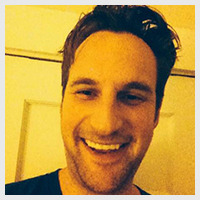 Christopher Rhodes of James Fitzgerald Agency
Christopher Rhodes of James Fitzgerald Agency
About Christopher: Christopher Rhodes’s career in publishing began in 1996 as a bookseller at Borders Books at the World Trade Center. He has held positions in both the sales and marketing departments at Simon and Schuster and was Executive Assistant to Carol Mann of the Carol Mann Agency where, among other duties, he managed contracts and assisted in the sale of foreign rights. Currently, Christopher is the Facility & Events Coordinator for the library at the University of North Carolina Wilmington where, working closely with the university’s Department of Creative Writing, he plans and hosts readings, writer’s conferences, and fiction writing contests. he is now an agent at the James Fitzgerald Agency.
What he is seeking: Christopher accepts queries in the following areas: fiction; connected stories/essays; memoir; young adult; creative/narrative nonfiction; economics; social activism; inspirational; self-help; history (last 200 years); entrepreneurship; art & design; health & beauty.
How to contact: Send e-mail submissions via submissions [at] jfitzagency.com and put “Query for Christopher” in the title. Read their submission guidelines HERE.
____________________
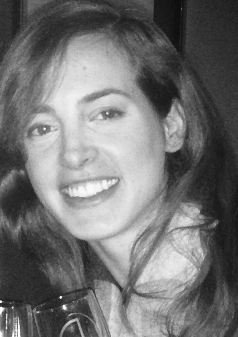 Allison Devereux of Wolf Literary Services
Allison Devereux of Wolf Literary Services
About Allison: Allison Devereux is Associate Agent and Foreign & Subsidiary Rights Manager at Wolf Literary Services. She also assists Gillian MacKenzie of the Gillian MacKenzie Agency. She has been with WLS since 2012, working closely with Senior Agent and VP Adriann Ranta, with whom she jointly represents clients. A Texas native, Allison earned her B.A. at the University of Texas at Austin, where she graduated from the Plan II Honors Program. Before coming to WLS, Allison worked at Macmillan in Tor Books’ managing editorial department; prior to that, she was an Editorial and Design Assistant at the Institute of Classical Archaeology in Austin, as well as an intern at the Harry Ransom Center.
What she is seeking: Allison is looking for literary and upmarket commercial fiction with fresh, unique voices and tight prose. She enjoys stories set in familiar, relatable settings, with everyman characters who find themselves in unlikely, surprising, and unexpected situations. She is also passionate about magical realism (more real than magic), and idiosyncratic, picaresque characters.
For nonfiction, Allison is interested in narrative nonfiction, compelling memoir, and books on popular and contemporary culture with a strong, original premise. She is looking for illustrated/graphic books for adults (both fiction and non), as well as blog-to-book projects. She also loves a good humor book.
Allison tends to shy away from science fiction, fantasy, and other genre fiction. She is not interested in self-help, erotica, spiritualism, hard SF, epic fantasy, or stories about fairies.
How to contact her: To submit a project, please send a query letter addressed to Allison along with a 50-page writing sample (for fiction) or a detailed proposal (for nonfiction) to queries [at] wolflit.com. Samples may be submitted as an attachment or embedded in the body of the email. Read their submission guidelines HERE.
____________________
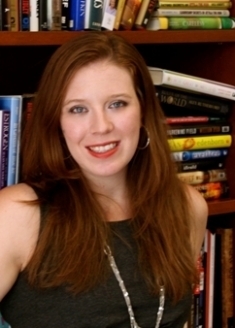 Allison Hunter of InkWell Management
Allison Hunter of InkWell Management
About Allison: Allison Hunter, a native of the San Francisco Bay Area, began her publishing career in 2005 working for the Los Angeles-based literary publicity firm, Kim-from-L.A. She joined the InkWell team in New York City in 2010. She has a B.A. in American Studies and Creative Writing from Stanford University and a J.D. from the University of Chicago Law School.
What she is looking for: Allison is actively acquiring literary and commercial fiction (including romance), memoir, narrative nonfiction, cultural studies, pop culture and prescriptive titles, including cookbooks. She is always looking for funny female authors, great love stories and family epics, and for non-fiction projects that speak to the current cultural climate.
How to contact her: Contact Allison through the agency at submissions @ inkwellmanagement.com (remove spaces). In the body of your email, please include a query letter and a short writing sample (1-2 chapters). Response time may take up to two months. Read submission guidelines HERE.
 Christopher Rhodes of James Fitzgerald Agency
Christopher Rhodes of James Fitzgerald AgencyAbout Christopher: Christopher Rhodes’s career in publishing began in 1996 as a bookseller at Borders Books at the World Trade Center. He has held positions in both the sales and marketing departments at Simon and Schuster and was Executive Assistant to Carol Mann of the Carol Mann Agency where, among other duties, he managed contracts and assisted in the sale of foreign rights. Currently, Christopher is the Facility & Events Coordinator for the library at the University of North Carolina Wilmington where, working closely with the university’s Department of Creative Writing, he plans and hosts readings, writer’s conferences, and fiction writing contests. he is now an agent at the James Fitzgerald Agency.
What he is seeking: Christopher accepts queries in the following areas: fiction; connected stories/essays; memoir; young adult; creative/narrative nonfiction; economics; social activism; inspirational; self-help; history (last 200 years); entrepreneurship; art & design; health & beauty.
How to contact: Send e-mail submissions via submissions [at] jfitzagency.com and put “Query for Christopher” in the title. Read their submission guidelines HERE.
____________________
 Allison Devereux of Wolf Literary Services
Allison Devereux of Wolf Literary ServicesAbout Allison: Allison Devereux is Associate Agent and Foreign & Subsidiary Rights Manager at Wolf Literary Services. She also assists Gillian MacKenzie of the Gillian MacKenzie Agency. She has been with WLS since 2012, working closely with Senior Agent and VP Adriann Ranta, with whom she jointly represents clients. A Texas native, Allison earned her B.A. at the University of Texas at Austin, where she graduated from the Plan II Honors Program. Before coming to WLS, Allison worked at Macmillan in Tor Books’ managing editorial department; prior to that, she was an Editorial and Design Assistant at the Institute of Classical Archaeology in Austin, as well as an intern at the Harry Ransom Center.
What she is seeking: Allison is looking for literary and upmarket commercial fiction with fresh, unique voices and tight prose. She enjoys stories set in familiar, relatable settings, with everyman characters who find themselves in unlikely, surprising, and unexpected situations. She is also passionate about magical realism (more real than magic), and idiosyncratic, picaresque characters.
For nonfiction, Allison is interested in narrative nonfiction, compelling memoir, and books on popular and contemporary culture with a strong, original premise. She is looking for illustrated/graphic books for adults (both fiction and non), as well as blog-to-book projects. She also loves a good humor book.
Allison tends to shy away from science fiction, fantasy, and other genre fiction. She is not interested in self-help, erotica, spiritualism, hard SF, epic fantasy, or stories about fairies.
How to contact her: To submit a project, please send a query letter addressed to Allison along with a 50-page writing sample (for fiction) or a detailed proposal (for nonfiction) to queries [at] wolflit.com. Samples may be submitted as an attachment or embedded in the body of the email. Read their submission guidelines HERE.
____________________
 Allison Hunter of InkWell Management
Allison Hunter of InkWell ManagementAbout Allison: Allison Hunter, a native of the San Francisco Bay Area, began her publishing career in 2005 working for the Los Angeles-based literary publicity firm, Kim-from-L.A. She joined the InkWell team in New York City in 2010. She has a B.A. in American Studies and Creative Writing from Stanford University and a J.D. from the University of Chicago Law School.
What she is looking for: Allison is actively acquiring literary and commercial fiction (including romance), memoir, narrative nonfiction, cultural studies, pop culture and prescriptive titles, including cookbooks. She is always looking for funny female authors, great love stories and family epics, and for non-fiction projects that speak to the current cultural climate.
How to contact her: Contact Allison through the agency at submissions @ inkwellmanagement.com (remove spaces). In the body of your email, please include a query letter and a short writing sample (1-2 chapters). Response time may take up to two months. Read submission guidelines HERE.
Published on February 13, 2014 12:29
February 10, 2014
Most Authors Still Prefer Traditional Book Deal
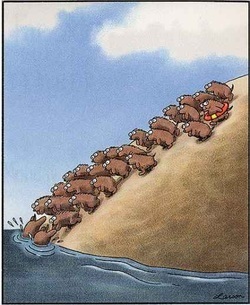 I've been keeping tabs on the most recent Digital Book World/Writer's Digest survey, not just because I want to know what other writers are up to, but because I want the reassurance that we are all up to the same thing.
I've been keeping tabs on the most recent Digital Book World/Writer's Digest survey, not just because I want to know what other writers are up to, but because I want the reassurance that we are all up to the same thing. There is safety in numbers.
______________________________
DBW 2014: Survey Finds Most Authors Want to Earn More
Publishers Weekly, Jan 15, 2014
The Digital Book World/Writer's Digest 2014 survey, discussed at the organization's New York event this week, found that, in spite of the growing popularity of self-publishing, many authors would, given the chance, still opt for a traditional book deal.
Just over 9,200 authors responded to the survey, and they fall into four categories: aspiring (not yet published in any manner); self-published (have never worked with a traditional publisher); traditionally published (have only been published by a traditional house); and hybrid (have had experience self-publishing and have also been published by a traditional house). The survey, which is available for purchase at the DBW store, focuses on commercial fiction writers who are not treating their writing as a full-time job, and would like to be making more money from their writing.
Among some of the big picture takeaways from the survey are that, despite some negative impressions of traditional publishing, it remains the route many authors would like to pursue. Although the sampled authors felt traditional publishing offers less creative freedom, what it provides in other areas--namely marketing, distribution and editorial support--is a positive that outweighs the negative.
DBW found that the traditionally-published authors surveyed felt traditional publishing offered "lackluster" experience relative to what they hoped for, and expected.
Among hybrid authors surveyed, DBW said they were showing a "pattern of movement" from traditional houses to self-publishing. The DBW survey highlighted a familiar tale of the traditionally-published author who, unhappy with his or her treatment/sales/revenue, opts for self-publishing, which offers a much higher royalty rate. Among these hybrid authors, there was more satisfaction with self-publishing, and only 16.1% of this group, DBW found, said they intended to go back to traditional publishing.
Most of the authors in the DBW sample who had been traditionally published did not receive an advance, and almost all of the authors interviewed identified advances as a benefit of traditional publishing. Also, interestingly, DBW found that there was not a significant discrepancy in sales among authors in the survey who self-published and those who were traditionally published.
Overall, DBW found, these authors were not happy with their sales period. As the survey notes: "Neither mode of publishing, it seems, provided authors with what they hoped in terms of sales, earnings, distribution, or marketing."
Read the full article HERE.
Published on February 10, 2014 11:18
February 8, 2014
University of Central Lancashire launches world's first degree in self-publishing
 This announcement raised my eyebrows. A master's degree in self-publishing? I can see a course, perhaps two, but not a degree. This is what they offer:
This announcement raised my eyebrows. A master's degree in self-publishing? I can see a course, perhaps two, but not a degree. This is what they offer:"This course will equip you with all of the necessary skills you will need to be a self-published author including how to edit your book, how to lay it out, how to monitor sales, how to manage yourself and your finances, marketing yourself and your book and how to create an eBook. The final part of the course will give you the opportunity to complete a finished copy of your book."
I'd be willing to bet money that online universities, and community colleges, will be offering courses soon - though perhaps not postgraduate degrees.
____________________
First self-publishing MA offers DIY education
Alison Flood, theguardian.com, Wednesday 5 February 2014
The University of Central Lancashire has announced the launch of what it describes as the world's first degree in self-publishing.
The MA will begin in September, and course leader Debbie Williams believes it will help "legitimise" self-publishing. "Things have definitely changed. In the last two years, self-publishing has stopped being a dirty word, and is a legitimate option for authors," she said. "Even the biggest authors are looking at it now."
Despite the negative light in which self-publishing is viewed by some – Jeffrey Archer recently said "it doesn't work, don't do it. The only person who reads it is the person who gets it published", while Sue Grafton has characterised DIY-ers as "too lazy to do the hard work" – the university pointed to research from the books data company Bowker, which found that around 390,000 titles were self-published in the US in 2012, up 59% on 2011 and a massive 422% on 2007. Digital self-publishing also continues to boom, accounting for 40% of self-published titles in the US in 2012, up from just 11% in 2007, according to Bowker.
Read the rest of this article HERE.
Published on February 08, 2014 09:40



